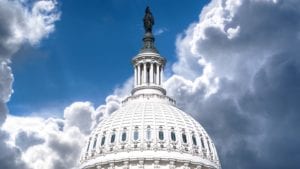
In his first post, Conover argued that drawing inferences from observational studies about whether covering the uninsured will save lives is a fool’s errand . Quasi-experimental studies hypothetically provide a better tool for figuring out whether insurance coverage reduces mortality risks. Unfortunately, the two studies we have available are very unreliable instruments for figuring this out.
That said, based on the two studies reviewed, Conover cannot rule out the possibility of “excess deaths” in the event some people lost coverage as a result of repeal-and-replace efforts. Ironically, because the lion’s share of coverage gains under Obamacare has been through Medicaid, the New York study arguably is the most appropriate one to use to determine the effects of repeal. However, it is less credible than the Massachusetts study in terms of how much confidence anyone should have in its results.
In short, beware of anyone who claims we will lose 1 life for every 435 newly uninsured. 1 life for every 830 people is more believable, but even that is exaggerated and is far more likely to apply to those gaining private coverage than those enrolling in Medicaid. Unfortunately, the current state of science does not provide a very solid basis for guessing how much this estimate is inflated.
. . .








